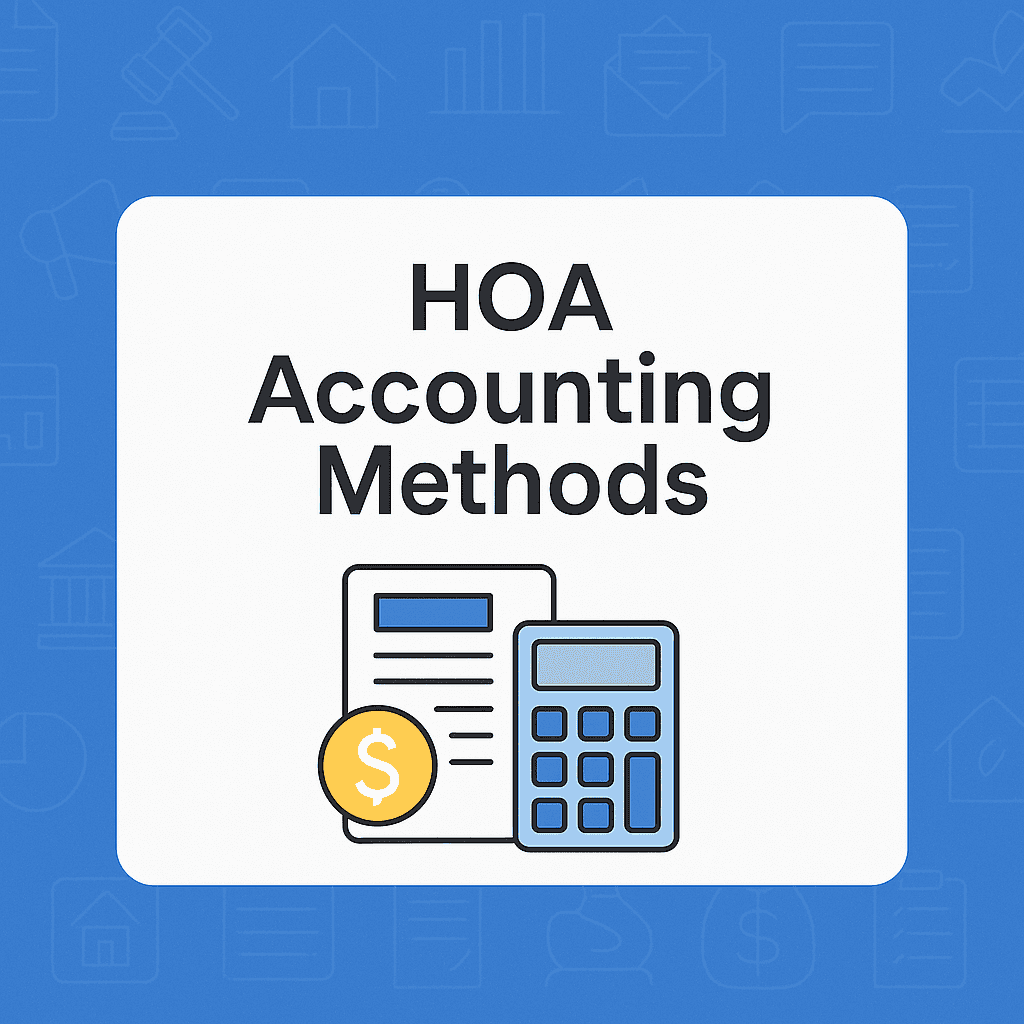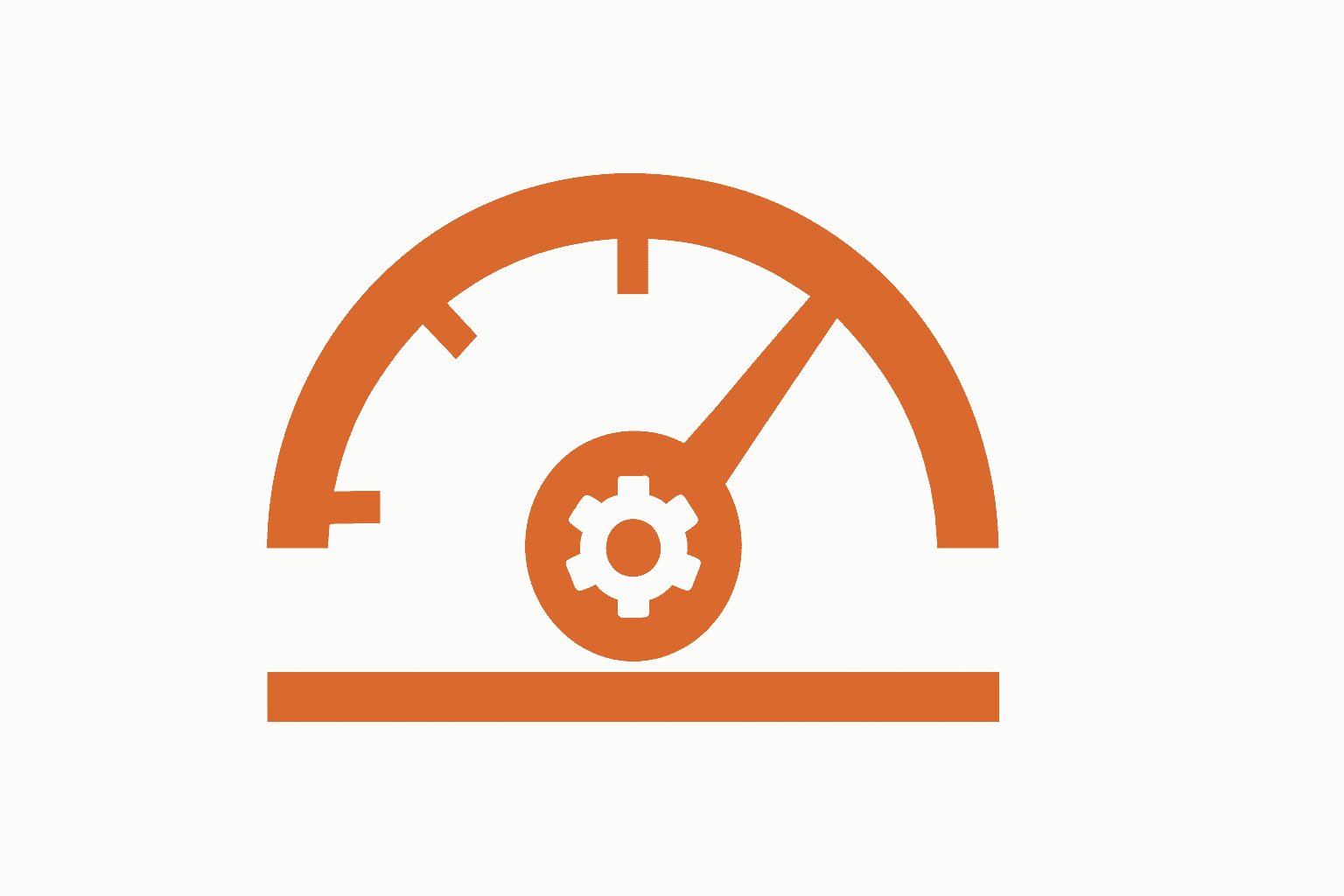HOA accounting methods: a complete guide for board members
Understanding HOA accounting methods is key to running a financially healthy community. This guide explains the differences between cash, accrual, modified accrual, and hybrid accounting. Learn how each method works, when to use them, and why choosing the right one can help your HOA plan better, stay compliant, and build trust with homeowners.

Running a homeowners association (HOA) is not just about keeping the lawn tidy or sending newsletters. One of the toughest and most important tasks for any HOA board is handling the money. That means setting budgets, collecting dues, paying bills, and planning for future repairs. To do this properly, HOAs rely on different accounting methods.
This guide will walk you through the most common HOA accounting methods: cash, accrual, modified accrual, and hybrid approaches. You’ll learn how each method works, when it is best used, and why choosing the right one matters for your community.
Why accounting methods matter for HOAs
Accounting might sound dry, but it’s the backbone of trust in your HOA. Members want to know how their dues are being spent. Banks and auditors want accurate numbers. And the board needs reliable information to make decisions about maintenance, reserves, and long-term projects.
Choosing the right accounting method isn’t just about compliance. It affects transparency, planning, and even property values. Poor practices can lead to fines, lawsuits, or costly special assessments.
Let’s avoid that.
The main HOA accounting methods
Most HOAs use one of three approaches: cash basis, accrual basis, or modified accrual. Some also adopt a hybrid method that mixes elements of both cash and accrual.
Let’s look at each in detail.
Cash basis accounting
Cash basis accounting is the simplest. Here, income is recorded only when money is actually received, and expenses are recorded only when bills are paid.
- If a homeowner pays dues late, the income is not shown until the payment arrives.
- If the HOA receives a bill but hasn’t paid it yet, that expense doesn’t show up.
This makes cash accounting easy to follow and good for tracking day-to-day cash flow. Many small, self-managed HOAs use this method because it requires less bookkeeping.
Pros
- Simple to use and understand
- Reflects real cash on hand
Cons
- Doesn’t show unpaid bills or overdue assessments
- Makes long-term planning harder
Cash basis is best for very small HOAs with limited transactions, or as an interim method for boards that just need quick snapshots.
Accrual basis accounting
Accrual accounting is more complex but much more accurate. With this method, income and expenses are recorded when they are earned or incurred, not when the money changes hands.
- If dues are due in January but collected in March, the income is still recorded in January.
- If a repair bill is issued in February but paid in April, the expense is still shown in February.
Accrual accounting follows GAAP (Generally Accepted Accounting Principles) and gives a full picture of the HOA’s financial health. It makes it easier to plan reserves, track projects, and create budgets that reflect real obligations.
Pros
- Provides the most accurate financial overview
- Recognized by auditors and lenders
- Better for long-term planning
Cons
- More complicated to manage
- May require professional help
- Most experts recommend accrual accounting for official HOA reports and large associations.
Modified accrual accounting
Modified accrual is a mix of cash and accrual. It treats income like accrual (recorded when earned) but expenses like cash (recorded when paid).
For example: dues owed in January are recorded as January income, even if collected later. But a repair bill is only recorded once the HOA actually pays it.
This approach provides a partial picture. It works for HOAs that want a middle ground between simplicity and accuracy. However, it can cause confusion because income and expenses are tracked differently.
Hybrid methods
Some HOAs use a hybrid method, tailoring practices to their needs. For instance, they might use cash accounting for operating expenses but accrual for reserves.
Hybrid methods are flexible but can be messy if not applied consistently. They may also confuse board members or homeowners trying to understand reports.
How to choose the right method
The “best” method depends on your HOA’s size, complexity, and reporting needs:
- Small, self-managed HOAs often use cash because it’s easy.
- Medium-sized HOAs may adopt modified accrual to balance simplicity and accuracy.
- Large HOAs or those with outside audits usually use accrual, as it aligns with GAAP and provides full transparency.
In some states, the law dictates which method can be used, especially for annual financial statements. Always check state rules and your governing documents.
Best practices for HOA accounting in 2025
No matter which method you use, solid practices make all the difference:
- Transparency: Share clear financial statements with members regularly.
- Consistency: Stick to one method for official reports. Changing methods too often creates mistrust.
- Internal controls: Separate duties for collecting, recording, and approving expenses to prevent fraud.
- Automation: Use modern tools to speed up reporting and reduce errors.
When to seek professional help
Even if your treasurer is sharp, HOA accounting can get complicated. Late payments, reserve studies, and legal compliance all add pressure. Many boards hire an accountant or management company to prepare financial reports.
Professional help ensures compliance, avoids mistakes, and frees up volunteers to focus on community issues rather than bookkeeping.
Final thoughts
HOA accounting isn’t just about numbers. It’s about building trust, making smart plans, and protecting property values. By understanding HOA accounting methods; cash, accrual, modified accrual, and hybrid, you give your board the tools to keep the community financially healthy.
If your HOA hasn’t reviewed its accounting method in years, now is the time. The right choice today can save headaches, prevent disputes, and ensure your community thrives tomorrow.
FAQ about HOA accounting methods
- What are the main HOA accounting methods? The most common methods are cash basis, accrual basis, modified accrual, and hybrid. Cash tracks money only when it moves, accrual records it when earned or incurred, modified accrual mixes the two, and hybrid lets boards adapt parts of both systems.
- Which accounting method is best for HOAs? It depends on size and complexity. Small HOAs often use cash for simplicity. Larger HOAs or those with outside audits usually rely on accrual, as it follows GAAP and gives a complete financial picture. Modified accrual and hybrid methods work as middle options.
- Are HOAs required by law to use a specific method? In some states, yes. Certain state laws or governing documents require accrual accounting for annual financial statements. Always check local rules and bylaws to confirm what your HOA must use.
- Can an HOA change its accounting method? Yes, but it should be done carefully and consistently. Switching too often creates confusion and mistrust. If a board decides to change methods, it’s smart to document the reason, explain it to members, and get help from an accountant to keep reports accurate.






